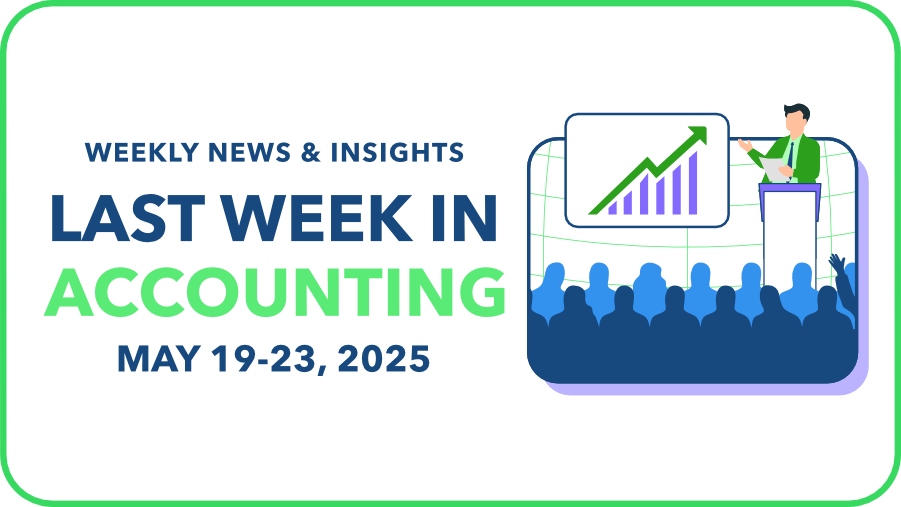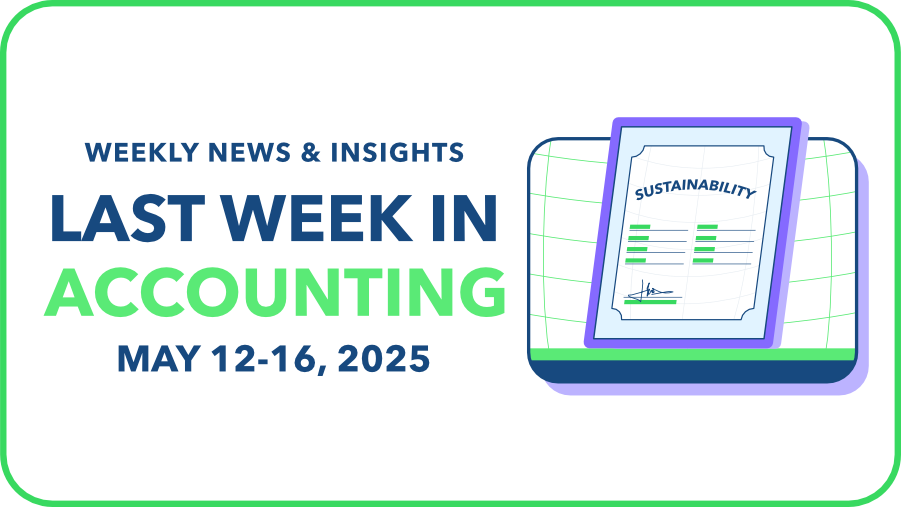🔍 Top headlines
CFOs double down on ERP and AI investments
At the 2025 Gartner CFO & Finance Executive Conference, finance leaders made one thing clear: enterprise resource planning (ERP) and artificial intelligence (AI) are no longer just operational upgrades—they’re essential for driving growth and resilience. Gartner’s Alexander Bant highlighted how CFOs are leveraging more modular ERP solutions to unify processes, and deploying AI to improve forecasting, automate repetitive tasks, and deliver sharper insights.
For accounting firms, this signals a rising client expectation for technology-enabled guidance, not just transactional services. Firms that can help clients integrate, interpret, and act on data will be better positioned to deliver value. But the challenge isn’t just about buying tools; it’s about embedding them meaningfully into workflows to support smarter, faster decision-making. In an uncertain market, the firms that can help translate tech investments into strategic advantage will stand out.
Walmart’s RIM accounting spotlight raises pricing questions
Walmart’s recent warning about higher prices—driven largely by shifting tariffs—has put a spotlight on the retail inventory method (RIM), a common but often misunderstood accounting approach. RIM lets retailers estimate inventory costs based on retail prices, which can streamline accounting and also introduces volatility. As Fortune reports, in times of rapid cost changes—such as those caused by new tariffs—RIM can distort gross margins, complicating profit forecasting and price-setting.
For businesses and advisors navigating tight margins and shifting consumer expectations, this is a timely reminder: accounting methods like RIM aren’t just technical choices. They can have ripple effects across operational strategy, financial reporting, and long-term resilience—especially in today’s volatile economic environment.
Finance professionals turn to AI and analytics for smarter cost management
A recent Deloitte and Institute of Management Accountants survey reveals that 53% of finance professionals have integrated, or plan to integrate, technologies such as AI, blockchain, or advanced analytics into their cost and profitability management models. Despite this, spreadsheets remain the most widely used tool for performance modelling, with nearly 30% of respondents relying on them. The survey also indicates that 19% of professionals anticipate emerging technologies will automate routine tasks and processes, while 18% foresee a shift toward real-time data analysis and predictive analytics models. Furthermore, 54% of respondents highlighted the need to enhance the transparency of cost and profitability reporting within their organizations.
This data highlights the growing recognition among finance professionals that integrating advanced technologies into their workflows is a crucial step toward enhancing cost management and improving reporting transparency. As businesses strive for greater efficiency and accuracy in their financial operations, embracing these technologies will be crucial for staying competitive and meeting evolving stakeholder expectations.



